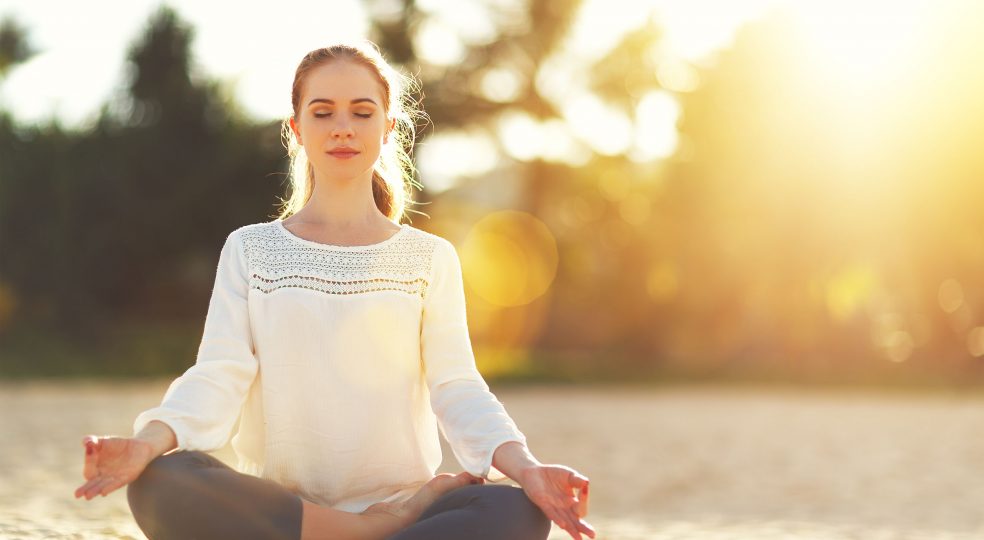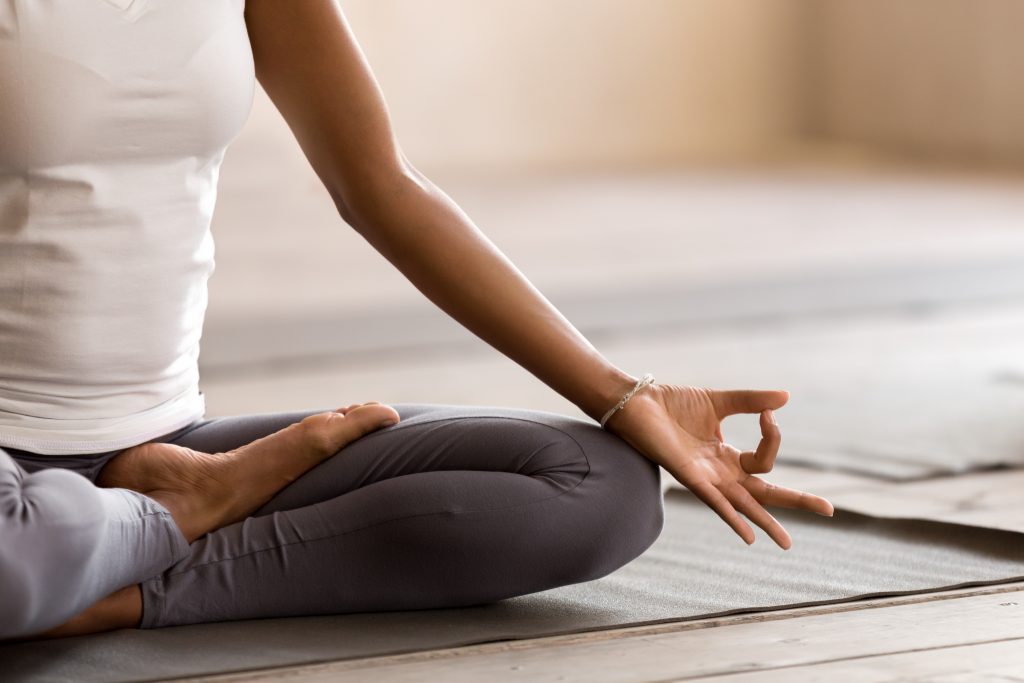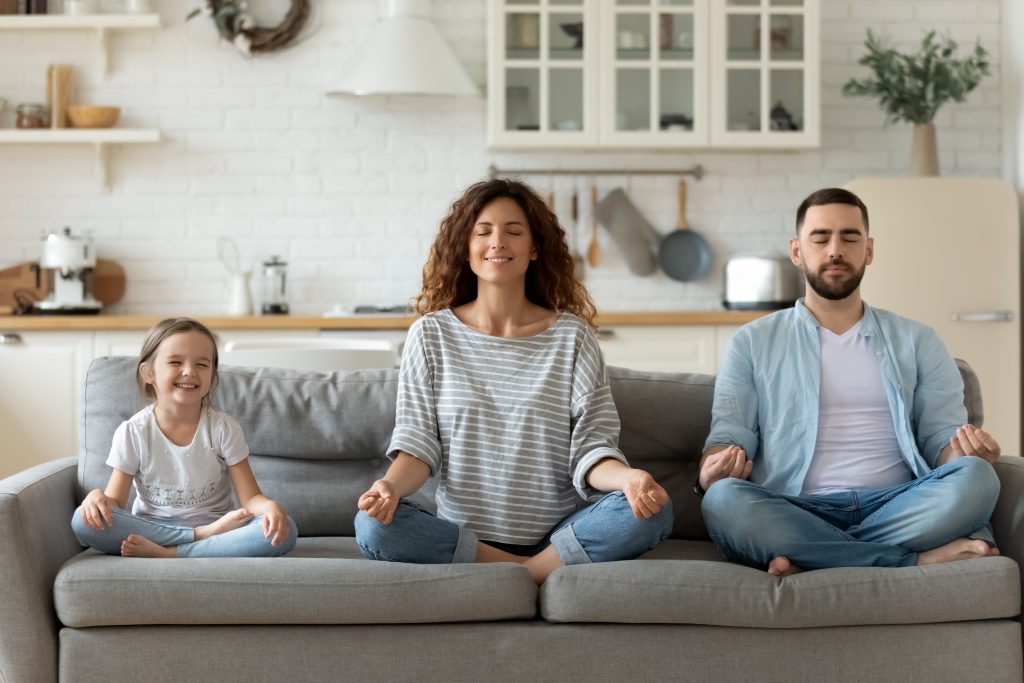
Finally finding peace, sorting out the jumble of thoughts and bringing body and mind into harmony - this and much more is possible thanks to mediation. It helps you to focus on the important things in life, to complete your tasks purposefully and at the same time to listen to your inner voice. Basically, mediation is about Meditation It's about focusing your attention and directing it to something specific. This can be your thoughts, your emotions or simply your breath. You recharge your physical and mental batteries.
You have also often played with the idea to start meditating but do not really know how to start? Then you've come to the right place. We'll help you get started, introduce you to a few simple meditation exercises for beginners, and have plenty of valuable tips for you.
The right entry into the Meditation is not easy for everyone. To Uncertainties To get you out of the way right at the beginning, we've put together six tips for meditation for beginners that you can use to take your first steps with ease.
It all starts with the right environment. Create a place where you feel really comfortable and where nothing and no one distracts you. Your meditation space should be yours alone and adapted to your personal preferences.
After all, you should only concentrate on yourself during meditation and not get angry about things you don't like. By the way, your mobile phone has no place here either. Anything that could distract you is banned.
Do you travel a lot and can you use your Meditation For example, take the cushion on which you always sit during meditation. This pillow immediately connects your mind with tranquility and switches directly to meditation mode.
A meditation is not finished in a few seconds. It is therefore important that you find a position in which you can remain for a longer period of time without it becoming uncomfortable. The classic meditation posture is the so-called lotus position. It is similar to cross-legged sitting.
If you find it difficult to remain in this position, you can also kneel down, sit on a chair or lie down. It is important that your back is always straight. Your clothing is also important.
Tight, inflexible clothing doesn't make it any easier for you to find a comfortable position. You need comfortable clothes that don't restrict you. These can be airy shirts, loose sweaters, sweatpants or leggings. What's allowed is what's comfortable.

"Good things come to those who wait" is also the case here. No one is born a meditation guru. Don't get impatient right away because you might find it hard to get started at the beginning. Give yourself time and start without any pressure.
It's perfectly fine if your first meditations only last five minutes. Compulsion will not move you forward. Increase bit by bit.
Man is and will remain a creature of habit - that will probably never change. If you want to change the Meditation If you want to integrate it firmly into your daily routine, you have to make it a habit. This works best if you give it a fixed place in your daily routine. This place is only for meditation and nothing else.
For example, you can meditate directly after getting up when you come home from work and want to start the end of the day, or shortly before going to bed to relax and drift off into the land of dreams. In this way, you automatically meditate regularly without having to remind yourself over and over again. And regularity is a very important factor for the success of meditation.
Quietness - probably the most important factor in meditation. This does not only mean that your environment should be quiet so that you can concentrate on yourself and your thoughts. You yourself are also required. You should really allow yourself this moment of peace. Yes, time is a scarce commodity.
This thought is firmly anchored in our minds, because we live in a time in which standstill often means nothing good. But you can invest a few minutes a day in meditation with a clear conscience. Do you know why? Because it helps you organize your thoughts, recharge your batteries and make you more productive. You work more efficiently, more concentrated and therefore complete the tasks of the day faster.
Your inner self may initially resist just sitting there and basically doing nothing. This is perfectly normal, because you're simply not used to it. Resist the urge to jump right in and continue working through your to-do list. Only if you persevere will you be able to benefit from the positive effects that meditation has on you.
The thoughts in your head are circling around wildly and just can't be quieted? No need to panic or even get angry, because that only makes things worse. Thoughts can't be pushed aside at the push of a button, at least not without practice.
You will probably go over upcoming appointments, bills, or grocery lists in your head during your first few meditations. Therefore the guided meditation especially well suited for beginners. You concentrate only on the voice that speaks to you and can switch off other thoughts much easier:
The good thing about a very simple meditation for beginners is that you can do it anywhere and anytime. You don't need any tools, just yourself and a quiet place.
Whether at home, in the lunch break or outside in nature - meditating could hardly be more flexible. Especially for beginners who do not yet have a meditation routine, the exercises that we present to you now are particularly suitable.
The mental merry-go-round turns and turns. Sometimes it's not so easy to get off it. So you need something to focus on instead. How about your breathing, plain and simple?
Inhale deeply through your nose for three seconds and then hold your breath for four seconds. Then exhale through the mouth for five seconds. Repeat this process three times. Then your breathing is concentrated only through the nose.
With this you actively direct your attention to your breath and come to rest. You switch off everything around you and recharge your batteries. Just a few minutes are enough, which is why the breathing exercises are also perfect for the lunch break, when you need a little energy boost.
Your everyday life is so stressful and hectic that concentrating on your breathing just isn't enough to make you forget all that for a moment? Then a mantra meditation is probably better for you. Now no, you don't have to keep saying "Om" throughout this meditation for beginners. Create a mantra that speaks to you personally.
For example, it can consist of three short sentences that describe what makes you happy or what you are grateful for. Here is a small example: "I am grateful for my family. I am thankful for my health. I am grateful for my life."
With such a mantra meditation, you not only calm your thoughts, but also tune your mind positively at the same time. Besides, it never hurts to regularly remind yourself of what you have to be grateful for in life, right?
Sitting still or even lying down - that's not your thing at all, because you're much too restless for that? Then try walking meditation. As the name suggests, you take a short walk. But make sure you choose a route that you know inside out. This way you can fully concentrate on your meditation for beginners and don't have to remember ways to get back.
In walking meditation you focus on your legs and all the muscles that enable you to walk. Feel how your legs carry you along the path and consciously perceive the ground beneath your feet. If you wish, you can speak your personal mantra softly to yourself in time with your steps.
We have already mentioned guided mediation very briefly. Here you listen to a calm, pleasant voice that guides you through your meditation. It helps you to reach the state of inner peace easier to achieve and eliminate disruptive factors.
It's a great way to get started until you find your personal routine. You can also find a suitable guided meditation for beginners on the following topics, among others:
Probably the biggest obstacle that beginner meditators face is time. You're incredibly busy and see absolutely no way to scoop up a few minutes for a beginner meditation? Then you're one of those people who need to meditate especially badly.
Hand on heart: each of us has ten minutes a day, including you. The question is, where are your priorities? Would you rather spend those ten minutes lying on the couch and relaxing? Then you might as well meditate, because you'll benefit from it much more.
You actively bring order to your chaos of thoughts, recharge your batteries and increase your productivity. A Longitudinal study of the Massachusetts General Hospital of the Harvard Medical School in Boston from 2011 could even show that a mindfulness-based stress reduction, among other things, have a positive influence on memory processes.
Ten minutes on the couch won't get you those benefits.

It's hard to get started. Wait a minute, it doesn't have to be! You just need to find the right way to get started. To help you do that, we'll answer the questions most often asked by beginners.
Find a place where you are undisturbed. Get into a comfortable position, take a few deep breaths and then devote yourself to your chosen meditation for beginners. Say your mantra, focus on your breathing or listen to the guided meditation.
The duration of the meditation is entirely up to you. Do not put yourself under pressure. Meditate as long as it feels good for you. If you only last five minutes at the beginning, that's no problem. Increase step by step.
Of course you can learn to meditate alone. We at Greator are happy to accompany you on your way to yourself.
Right and wrong do not exist in meditation. It is only important that meditation works for you personally. It is crucial that you can fully concentrate on yourself and feel comfortable.
Beginners find it particularly easy to concentrate on personal mantras or their own breathing. However, you can also let your thoughts run free if you feel comfortable with this. See where they take you and then concentrate on an aspect that you feel comfortable with. Feelings of happiness or reassures you.
Need a little push to get a foothold in meditation? Then join our Meditation Challenge! Here are several short meditations waiting for you every day to help you find more peace, Serenity and clarity. Sign up now for free!

